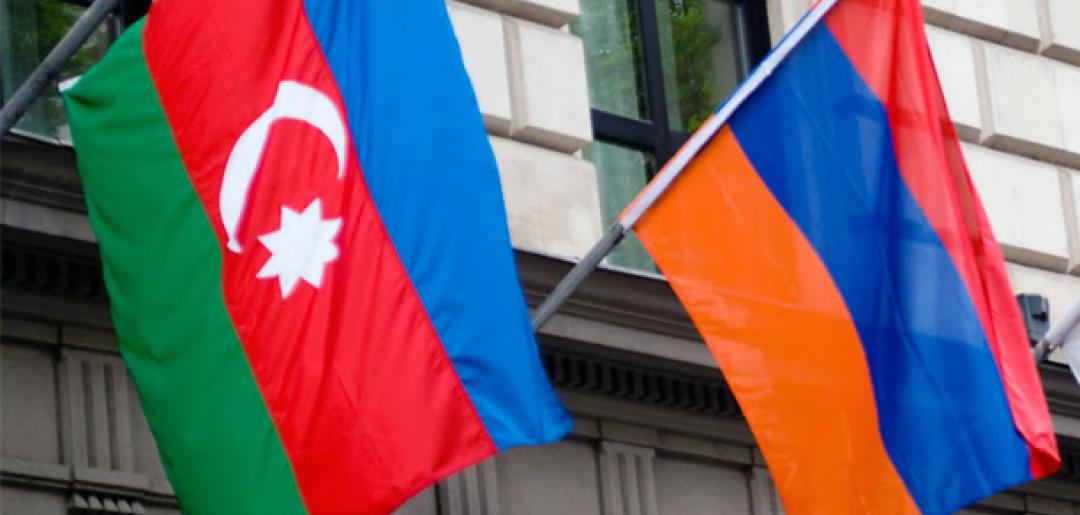
Armenia and Azerbaijan conduct “silent” exchange of journalists

On 14 November, the Azerbaijani media agency Turan reported on an upcoming visit of Armenian journalists to Azerbaijan, which took place on 17 November.
It was reported by the same source, that on 18 November, the Armenian journalists privately communicated with representatives of civil society in Azerbaijan. Panarmenian.net reported that the group of Azerbaijani journalists is expected to visit Armenia on November 18-19. The Ministry of Foreign Affairs of Armenia neither confirmed nor denied the reports. Armenian Ministry of Foreign Affairs spokesperson Anna Naghdalyan declined to comment on the issue. Only the adviser to the President of Armenia Tevan Poghosyan told the local press that on both sides three journalists were participating in the project. According to the existing agreement between the Foreign Ministries of Azerbaijan and Armenia, the parties inform each other about mutual activities in a coordinated manner. Hence, the visit of the journalists will be made official at the end of both trips.
As for Azerbaijan, the Chair of Press Council Aflatun Amashov commented on the visit. “The liberation of our lands is our common and sacred goal. All our activities are focused on this goal. I would like that all of us are guided just by this goal and from this point of view I consider… the statement [regarding] the expediency of visit of Armenian journalists to Azerbaijan or prohibition of their visit or visit of our journalists to the enemy country or prohibition of such visits [to be inccorect]. Note that in general, intellectual contact is important,” he said.
“After the shelling of parliament in 1999, the direction of political processes started to change. As a result, Armenians indirectly withdrew from negotiations. Gradually, the process was deadlocked. Generally, the change of political situation impacted the visits of journalists as well. The visits slowed down and [eventually] stopped. As [far as] I know, the last journalist visiting from Azerbaijan to Armenia is the editor of Turan information Agency Shahin Hajiyev. The visit [occurred] at the beginning of this year. And I consider that this was useful,” he continued.
“In 1999-2001, we wanted the Armenian Community to understand the real situation. We [still] want [this], as Armenian Community did not have correct information about Nagorno-Karabakh conflict today. The conflict was improperly interpreted. It came from their political targets. Or rather peace search is underway, it is necessary to use all initiatives which can trigger the process. We should use all opportunities to take advantage of the process entitled “negotiation with the enemy”. However, the title of our relations with Armenians on the ground of Nagorno-Karabakh conflict is peace negotiation. Our state tries for it. Certainly, peace should be provided with fair terms,” he concluded.
The President of the Armenian Press Club Boris Navasardyan also commented on the issue in an interview with panorama.am. “It is not clear [why] this process [is taking] place in [a] confidential mode. This [could] be explained by the fact that they might have thought that there are… circles - in Azerbaijan [and] Armenia who do not like it and various preparatory work and provocative actions can be carried out on their part. In any case, I believe that such provocative actions, which can manifest themselves in the form of a picket, are more dangerous when societies begin to doubt why they keep it secret. It is very likely that they can get a very negative reaction from a positive effect,” he said.
“I hope that journalists will fulfil their professional duty [ to the best of their ability], which can open a certain path for the future. Despite the [current] relations between Armenia and Azerbaijan, and [that] the negotiation process is at an impasse, the countries and populations of these countries should know about each other. I can state [that] the development of recent years, approximately since 2000-2001, the dynamics [regarding bilateral contacts were] rather negative in Azerbaijan,. Gradually, we can [see] that there are fewer people who come for sincere and constructive contacts, more people who have a clear agenda, who are well prepared and who have made appropriate commitments regarding how to behave during various visits and events. But this does not mean that such people are no longer in Azerbaijan. I know such people and, if this precedent has been continued, international mediators should be able to find these people and make them participants in contacts and dialogue, because otherwise this initiative will be discredited,” he concluded.
Turan also reported that the initiative for the journalist exchange came from the Russian Ministry of Foreign Affairs. On 31 October, Russian Minister of Foreign Affairs Sergey Lavrov met with OSCE Secretary General Thomas Greminger in Moscow to discuss possible measures to progress the peace talks in the Nagorno-Karabakh conflict. He also stated that there “was hope regarding the exchange of journalists” (Caucasus Watch reported).
See Also


Mirzoyan Meets US Deputy Assistant Secretary Joshua Huck

Azerbaijani President Holds Talks with UAE and German Business Delegations on Economic Cooperation

Grigoryan Confirms Armenia’s Readiness to Dissolve OSCE Minsk Group Upon Peace Treaty Signing

Azerbaijani Official Warns of Ecological Risks to Caspian Sea, Similar to Lake Urmia and Aral Sea

